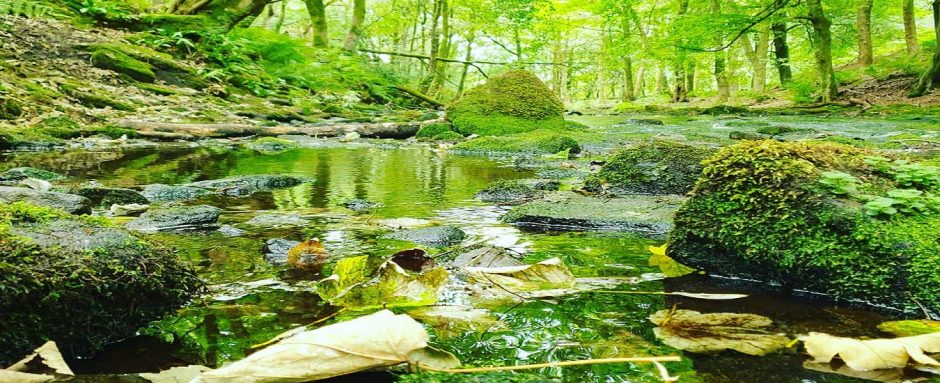
I must admit, if you were to ask me 8 months ago when I started my journey as a postgraduate researcher, what they actually did, I probably would have given you some sort of wise crack about just getting to read all day for fun. As we all quickly come to realise, being a researcher is oh so much more than that, and if you’re not careful it can overwhelm you. But fear not wayward travellers, I am here to help; in less than a thousand words I hope to tell you why you are here and increases your odds of academic survival.

Is it a mistake?
That panic might start as to why you are here at all – was it a
drunken bet gone wrong? Perhaps they confused your application with someone
else’s? My personal favourite: “At any moment someone’s going to come and blow
my cover, thus exposing that I’m an idiot”. I understand this anxiety, but
ultimately, you are here because your talent brought you here. You were chosen
by the strength of your ideas alone; where else in life can you be judged in
such a pure way? All I can say is, it’s been 8 months now and no one seems to
have noticed I’m a fraud, so if I can survive and, dare I say it, flourish
here, then so can you!
Why are you here?
Seems simple right? It is a deceptively complicated question; I
mean what does a unique contribution to the sum total of all human knowledge
mean? It is made worse by the fact you don’t even know what that contribution
will be until you write up your thesis, but there is hope. I’ve found (if you
aren’t already in your final year, in which case, good luck!) that if you scale
back to more regular, short term goals and try not to think so much about that
endpoint, you’ll feel a greater sense of ‘achieving things’ while also still
methodically working towards that endpoint (which we won’t speak about, kinda
like a literary Voldemort).
Is there anyone else here?
The isolation myth is a big one in our world, the misunderstanding
that you have to bury yourself in a pile of books in a dingy bunker somewhere –
like some sort of cognitive Jedi, refining your dark arts. Not only is this not
the case, but it’s unwise to think of it that way. For one, we are all social
animals and we feed off the positive social interaction of others; as much as
people may annoy us from time to time, they are necessary to our mental health.
Not only this, but there is something to be said for the exchange of ideas too:
how many times have you been so sure of a concept or argument, then you
casually mention it to someone and they undermine your whole idea by stating
something obvious you never thought of? Being a researcher is about exchanging
ideas with others, critically developing ways of thinking and then taking that
to the proving ground, i.e. ‘the field’. Not only will you get better at
talking with people outside your niche, but you will also improve your mental
fitness, and, who knows, you might even have some fun along the way (crazy
right?).
What does it mean to be a good researcher?
One of the first things I noticed, both on my master’s degree
and to a greater extent here as a doctoral student, was my loss of certainty.
There is this weird intellectual sensation, where you feel less confident about
what you know, despite you objectively knowing more every day. The more I read
about my area of research, the dumber I felt, “what the…fudge (wasn’t fudge
when I said it) is happening?”, I thought. It took me a while to realise, but
it’s actually a positive sign of your progression as a fully loaded brain box.
Being an astute researcher is all about appreciating that inner nuance of a
phenomenon. That’s why one day you’ll all be asked to provide some clarity to a
most complex issue or societal problem. Regardless of your discipline, you must
learn to embrace the chaos my friends.
Finally, what do we use our research powers for?
In my area of research, I look at homelessness. My desire to study this subject was simple: as a layman I couldn’t understand why it existed in this so-called civilised society. There is the perception from the outside, that it is an intractable human problem, an inevitable by-product of the capitalist system itself, or worse that these individuals somehow deserve to be this way (or structuralist versus individualist explanations if you want to be fancy). Some of the latest and most interesting findings for me have emerged from the government’s reaction during the Covid-19 crisis: seemingly overnight, local authorities housed over 15,000 of this ‘impossible’ population, with resources they never knew they had (#MoneyTree). For quite possibly the first time, previous social policy reasoning, stating that inadequate funding, limited housing and overstretched services prevented effective solutions, have proved suspect. As a researcher in this area, I feel I must challenge faulty assumptions like these and improve this situation by advocating for improvements to the system where my expertise allows. I don’t know what fields you are all in, but I’m sure there are countless ways you can use your insights to improve the lives of others, inspire positive change or perhaps just inform. In these strange postmodern times, in an almost ‘post-truth’ era, budding experts like you have never been more vital.
Anton Roberts
Postgraduate Researcher
Research area: Looking at the intersection between hypermasculinity and homelessness


